Grupo Teka,
Origem Alemã
A Teka e o desporto
A Teka é um nome de destaque na história do patrocínio desportivo. Ao longo dos seus 100 anos, a empresa esteve presente em muitos dos momentos mais importantes do desporto.
Durante esse período, o apoio da Teka em diversas áreas ajudou a criar algumas das histórias mais memoráveis do desporto moderno, consolidando-se como uma marca líder e definindo uma era nesse campo.
First brand sponsoring a football team in Spain
Everything began in 1981, when Teka became the first brand to sponsor a football team in Spain. It was also one of the first football team sponsorships in Europe. On December 27th, the Teka logo showed off on the Racing de Santander football team shirt in a Spanish Liga match against Real Madrid C.F. at the Santiago Bernabeu stadium. This match, the 17th of the Spanish League, ended with a 4–0 victory for Real Madrid. Racing de Santander finished that season in 12th place in the championship.
The act of displaying advertising on a professional football league shirt had no precedent until that moment. Racing de Santander had to request authorization from the Spanish Football Federation to print the shirts with the German brand name. This gesture changed the history of Spanish football forever. Shortly after, many other brands began sponsoring football teams. At that time, Teka paid around 60,000 euros for the sponsorship of the whole season.
Over the following years until 1989, Teka was the Racing de Santander sponsor, featuring the company’s logo on the shirt. For almost a decade, they wore the German brand’s logo design, managing to stay in the top division of Spanish football with team players only from Cantabria, a northern region of Spain, mostly.
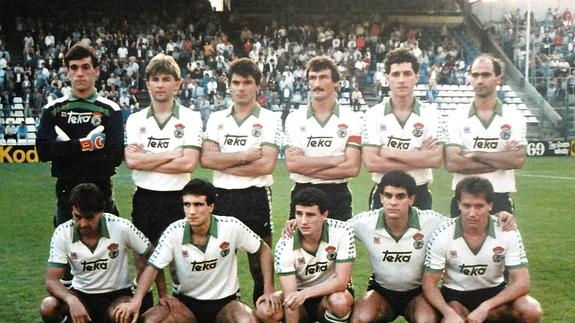
Real Madrid FC sponsorship
In 1992, another significant moment of sports sponsorship took place. Teka became Real Madrid C.F. official sponsor. At that time, the Real Madrid team was still living the last years of the well-known Quinta del Buitre, with Emilio Butragueño leading an unforgettable generation of players with Míchel, Sanchís, Martín-Vázquez, and Pardeza. Another key player for the team arrived that same season as a new star, Iván Zamorano, from Chile. At the same time, Robert Prosinecki, one of the standout signings for the club in recent years, returned to play after an injury.
Two Spanish leagues lost in the last minute in Tenerife marked those years, with two matches full of controversy and mistakes but also with excitement until the end. Jorge Valdano was the Tenerife team coach then. He joined Real Madrid soon after, in 1994. It was in 1992 as well when Real Madrid formed one of the best lineups in history with a remarkable style, winning the Spanish league and achieving other memorable victories, such as the 5-0 triumph over FC Barcelona at the Santiago Bernabéu stadium.
It was in 1994 that the legendary Real Madrid player Raúl González Blanco made his first appearance. In 1996, the Italian Fabio Capello signed as the new coach. The same year, with Teka sponsorship, the white team brought together a cast of legendary football stars. Mijatovic, Suker, Roberto Carlos, and Seedorf joined the club, along with a roaster of players already in the team like Fernando Redondo, Hierro, Amavisca, and Cañizares. Additionally, a new generation of talents led by Raúl González with names such as Guti, Álvaro Benito, and Víctor Sánchez emerged.
The team achieved good results that season, winning the Spanish league title playing against F.C. Barcelona with a young Ronaldo Nazario as part of the Catalonian team. In the following season, Jupp Heynckes became the new coach, and the club signed some relevant players like Fernando Morientes, the Brazilian Savio, or the French Christian Karembeu. One of the milestones of the club took place that season when the team won the club Seventh European Cup. On May 20th, 1998, at the Amsterdam Arena, Real Madrid C.F. defeated Juventus of Turin 1-0 with a Pedja Mijatovic goal and a lineup including Zinedine Zidane, Inzaghi, and Del Piero.
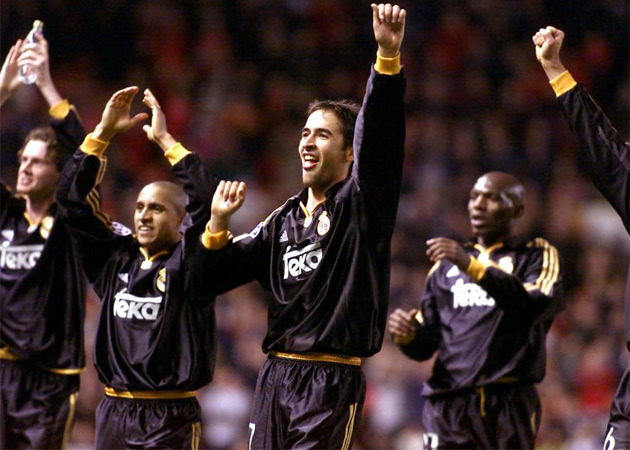
The title was the end of 32 years trying to win the European Cup without success. The following day after the match, Real Madrid celebrated the title beside the goddess Cibeles statue in Madrid, the no-official symbol of the club. More than half million people attended the celebration in the streets of Madrid.
In 1999 Real Madrid signed Vicente del Bosque as the new coach with other significant signings, like Steve McManaman, Nicolas Anelka, Míchel Salgado, and Iván Herrera. It was also the debut of another legendary player: Íker Casillas. The Madrid-born player made his debut in the top division with just 18 years old in a match against Athletic de Bilbao.
Shortly, on May 20th, 2000, at the Saint-Denis Stadium in Paris, the club experienced another historic moment. The final match of the European Cup took place between Real Madrid and Valencia C.F. With a 3-0 victory for the Real Madrid, winning the eighth European Cup after only two years of the seventh. Morientes, McManaman, and Raúl scored in that unforgettable match.
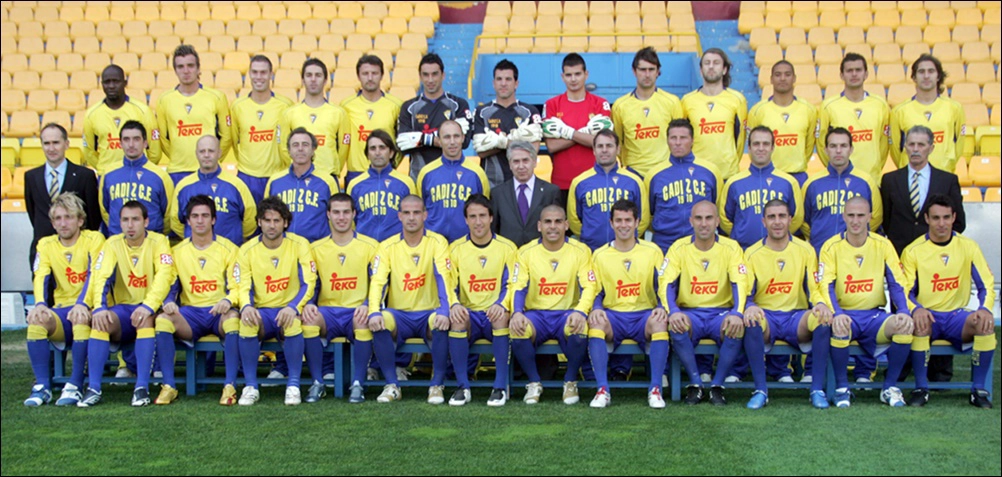
Cadiz FC sponsorship
A Teka assumiu o papel de principal patrocinador do Cádiz C.F., na temporada 2007-2008, com o seu logótipo estampado nas camisolas do clube andaluz. Fundado em 1910, o Cádiz C.F. é uma das equipas mais tradicionais do futebol espanhol.
A Teka estabeleceu uma das parcerias mais bem-sucedidas no basquete espanhol, além de sua experiência no patrocínio de futebol. É impossível pensar nas camisas de basquete do Real Madrid sem lembrar do logotipo da Teka, que esteve presente em dois dos períodos mais vitoriosos da história do clube. Essa camisa simboliza uma era inesquecível, não só para os adeptos do Real Madrid, mas também para fãs e equipas de basquete em todo o mundo.
First period: 1992-2000, Real Madrid Teka
Esses anos representam um marco para a equipa e continuam a ser um dos períodos mais queridos pelos seus fãs. Foi uma fase prolífica, durante a qual o clube reuniu jogadores inesquecíveis. Em 1992, a Teka começou a patrocinar a equipa, que passou a chamar-se Real Madrid Teka. O clube conquistou a Liga ACB duas vezes (1993, 1994) e, após 15 anos a tentar o título europeu, alcançou outro momento de glória com a vitória na Euroliga em 1995.
Simultaneamente à chegada da Teka ao Real Madrid, foi contratado Arvydas Sabonis. Foi um jogador fundamental na estratégia que levou a equipa aos primeiros lugares. Após a sua chegada, Joe Arlauckas e outros grandes nomes, como José Miguel Antúnez e Chechu Biriukov, integraram a equipa, marcando uma era de ouro sob a liderança do treinador Clifford Luyk. A chegada de mais estrelas, como Alberto Herreros e Dejan Bodiroga, trouxe ainda mais prestígio ao clube, que conquistou duas Taças dos Vencedores das Taças, três ligas espanholas e vários outros torneios, totalizando 15 títulos nesse período.
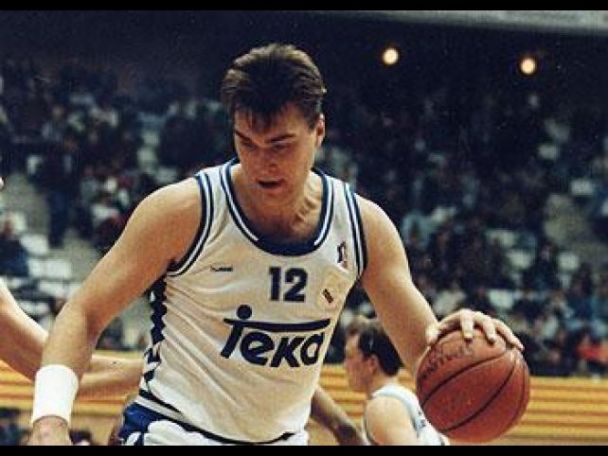
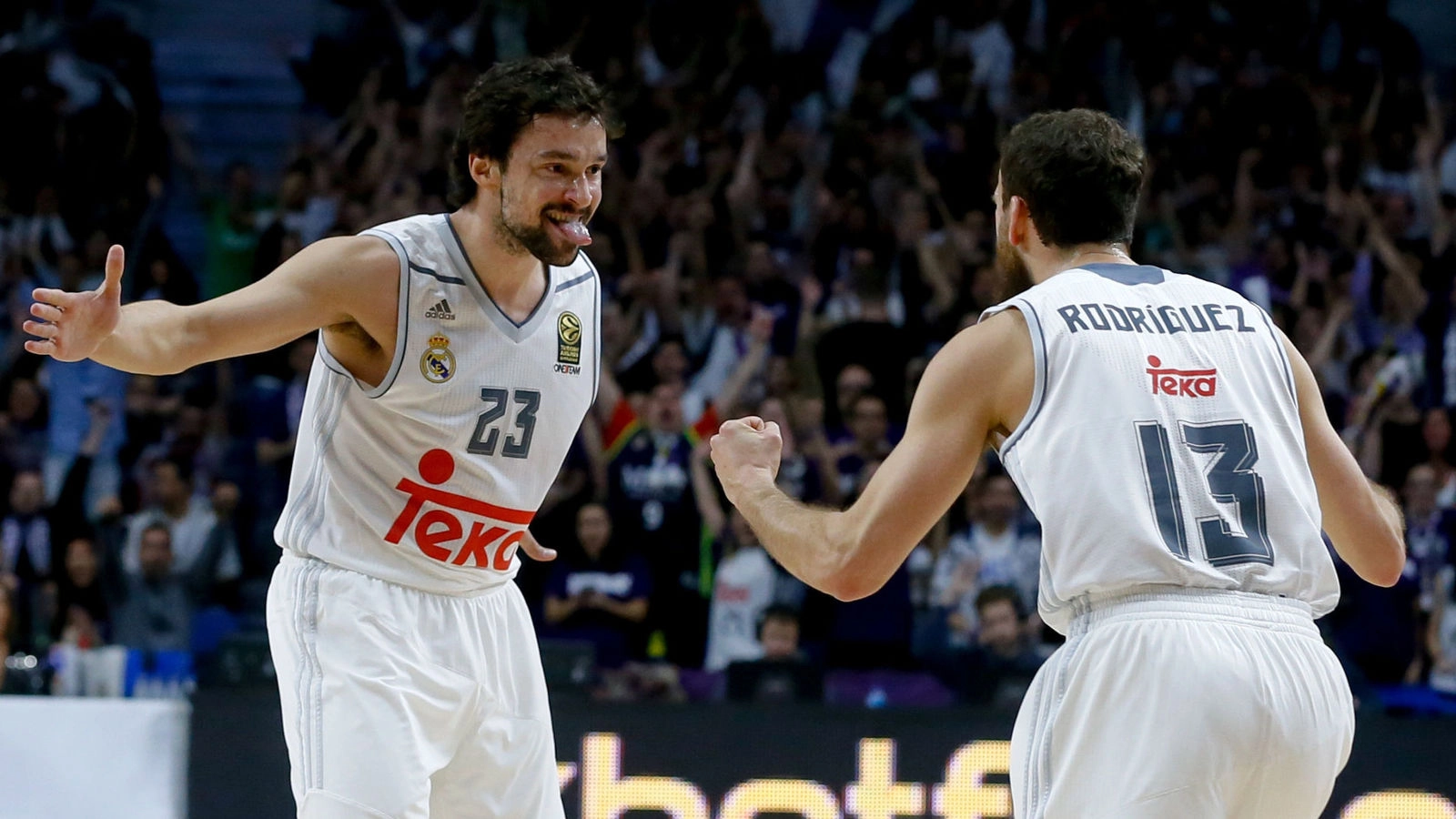
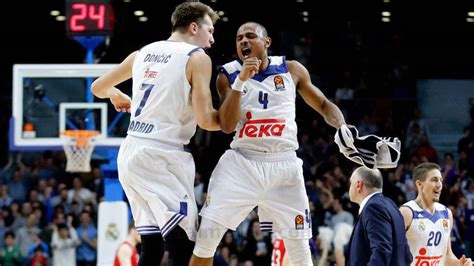
Second period: 2014-2016, Real Madrid de Baloncesto
Um novo capítulo começou entre a Teka e o antigo Real Madrid (Basquete). A Teka, sendo o patrocinador mais vitorioso na história do clube do Real Madrid, exemplificou isso durante este período. Florentino Pérez, representando o clube, e Arturo Baldasano, presidente da Teka, assinaram um acordo que marcou o início de uma era repleta de vitórias para a equipa.
A equipa reconquistou o seu prestígio na Europa ao assegurar a oitava Taça dos Campeões Europeus, além de outros títulos, como dois campeonatos, a Supertaça de Espanha, duas Copas del Rey e uma Taça Intercontinental FIBA. Os adeptos vivenciaram momentos inesquecíveis, como a final da Final Four contra o Olympiakos, vencida pela equipa espanhola no Palácio de Deportes, em Madrid.
O clube trouxe jogadores de renome como Rudy Fernández, Felipe Reyes, Jaycee Carroll, Sergio Rodríguez, Luka Doncic e Sergio Llull. Eles vestiram uma camisa que se tornou icónica na história do basquete em Espanha e no mundo, representando tanto o clube quanto os valores da marca, proporcionando-nos alguns dos momentos mais lendários do desporto.
After starting its history in sport in 1975, Teka launches a new challenge, extending its support to Spanish cycling in 1976. Spanish cycling in 1976. José Gómez Casuso, Teka’s manager, acted as a catalyst, as he had already done in the case of GD Teka Santander handball team. After coinciding with the cyclist and then great fan Santiago Revuelta, they created GD Teka Santander. Revuelta, they created GD. The team was based in Cantabria and grew until it reached its best moments during the 80s. during the 80’s.
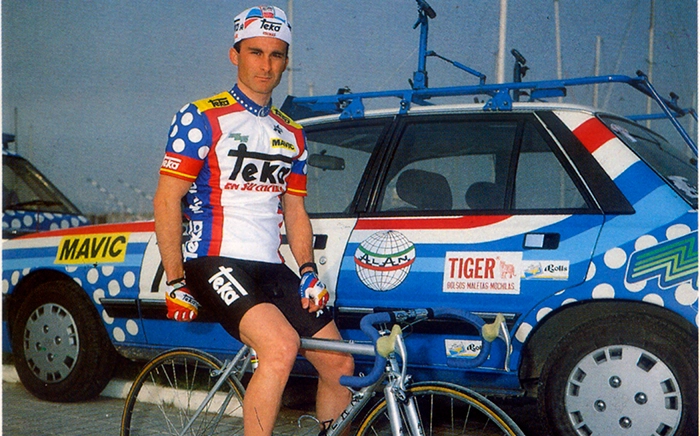
Grupo Deportivo Teka
The team found its way into the Spanish cycling races, gaining recognition. In 1977, they won the Vuelta a España in the team category, along with other races such as the Vuelta a Cantabria, Lérida, and Levante. They began to be a regular presence in the cycling scene and started signing national and local cyclists, as well as international ones. Names like the Spanish Julián Anddiano or the Portuguese Joaquim Agostinho found their place and secured victories with the Teka team.
The early 1980s saw the takeoff of the GDD Teka. In fact, cycling followers look back on these years with certain nostalgia because Spain began to be well-known in international competitions. It was an exciting time for the sport, and many supporters emerged during this decade. Many of the most renowned cyclists achieved their triumphs then and in the 1990s. Teka was a good example of these golden years.
In 1982, the now-famous Marino Lejarreta won the Vuelta a España with the Teka logo on his outfit. But his teammates had already obtained victories in other races, and new signings followed. Noël Dejonckheere or Reimund Dietzen were some of them, and subsequently, the team brought in experienced riders from Colombia for the first time in Spanish cycling, such as Edgar Corredor.
By the mid-1980s, GDD Teka’s significance in cyclism was clear, and they had one of the highest national budgets.
The GD achieved several victories in national competitions, including the Vuelta a España as a team in 1984. In 1986, GD Teka was chosen as the Best Professional Team of the Year, and by then, they had the largest team in the team’s history. Their participation in the Tour de France in the following years also resulted in victories on different stages.
The arrival of the 90s brought several events that led to the end of the relationship between Teka and the team. The GD Teka secured more than 500 victories throughout its history and featured some essential names in national cycling, such as Marino Lejarreta, Peio Ruiz Cabestany, Eduardo Chozas, Miguel María Lasa, and Marino Alonso.
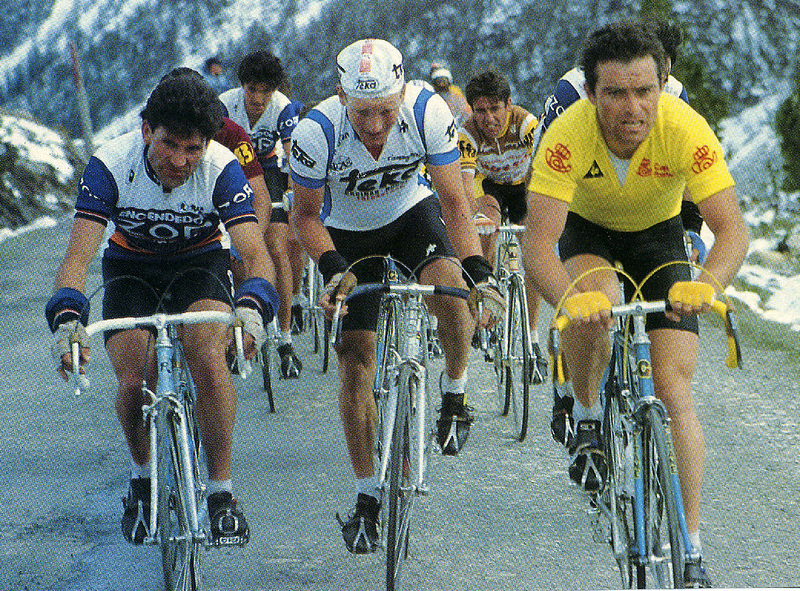
Teka’s commitment to sport reaches several disciplines, and it is easy to think about the company logo as part of some of the most glorious moments by Spanish teams. Handball holds a special place in this history because Teka began its journey into sports sponsorship with it in Cantabria, northern Spain, in 1975. The handball team Club Balonmano Cantabria was born that year as Grupo Deportivo Teka Santander, with the financial support of the company. Little did they know at the time that a local, second-division team would leave a mark not only on the history of handball but also on the history of Spanish sports.
Grupo Deportivo Teka Santander: 1975-1995
Santander, home of Teka’s first factory in Spain, hosted Grupo Deportivo. Sponsoring a club as a brand was never done before in the country, so both parts started a new common path, sharing their love for sport and fandom. A joint effort and devotion that would overcome the usual barriers found when starting from scratch would rub shoulders with top teams with a higher reputation and budget. José Antonio Revilla created the club, and José Gómez Casuso, Teka’s representative, arranged the team’s sponsorship.
The company became so involved that soon the team went down in history aas “El Teka.” Together with the human factor, excellent players, unwavering fans, and successful management, the team embarked on a swift career. After several attempts that left them close to reaching the Honour Division in Spanish handball, they finally made it in the 82/83 season. In 1985, “El Teka” played its first European competition, and in the 88/89 season, they won the Spanish Copa del Rey. By the end of the decade, the club had already turned into one of the top handball teams.
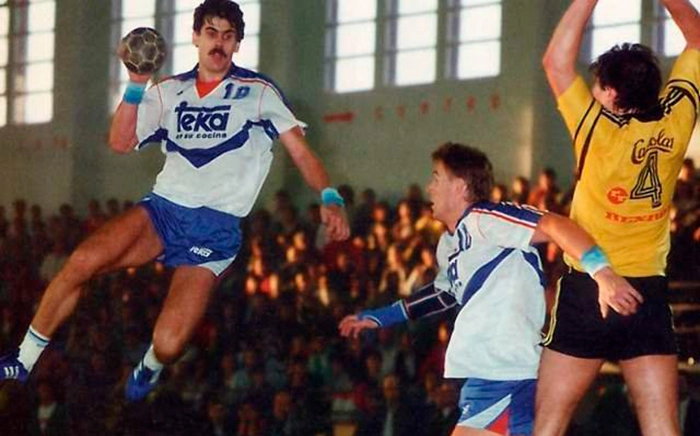
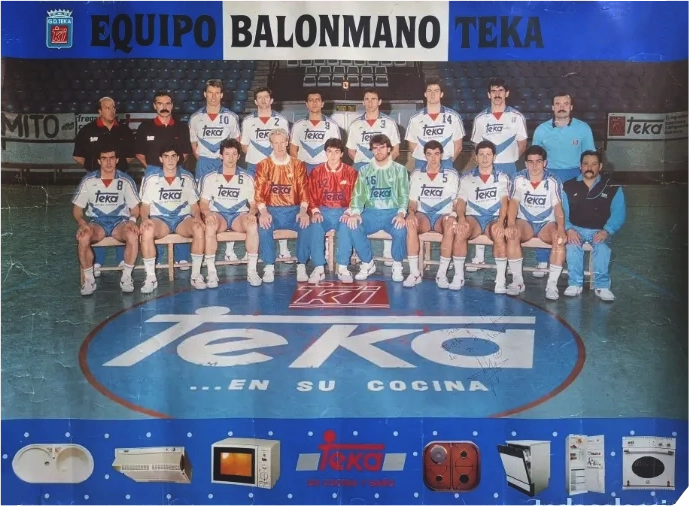
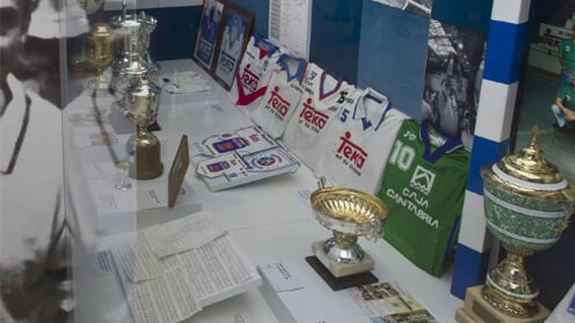
Teka Cantabria 1993-94: when we were the best team
The 92/93 season had a few new signings, such as Talant Dujshebaev, Mijail Jakimovic, and Mateo Garralda, key players for the future of the team, together with other players that already created a winning team. They achieve three consecutive top competition victories with the Supercopa de España, the ASOBAL Spanish League, and the IHF Cup (European handball competition). It was the first time a Spanish handball team won a European title. Names like Mats Olsson, Alberto Urdiales, José Javier Hombrados, Julián Ruiz, Roddrigo Reñones, Muñoz Melo, and Javier Cabanas became part of handball history.
During 93/94 season, the team won the ASOBAL seasonal league and the European Cup (Champions League), showing an unstoppable improvement since its beginnings. The documentary “Teka Cantabria 93/94. When we were the best team” (FID, 2022), features footage and interviews about how the club made history in Spanish Sports. The film pays tribute to the team’s journey to achieve their victories an both trophies.
In 1995, the brand and the team ended their relationship, only to come back a few years later, in 1999. Eventually, the club disbanded in 2008, concluding a career that brought Spanish handball to the top positions. Their list of victories includes the European Cup, the Club World Championship, two European Cup Winners’ Cups, several ASOBAL League titles, several Copa del Rey trophies, the Spanish Handball Supercup twice, and four ASOBAL cups.
Santander’s Sports Museum in the Palacio de Deportes of the city dedicated one of its modules to the team as a tribute, praising all the people who brought the city to the peak of European competitions through handball.
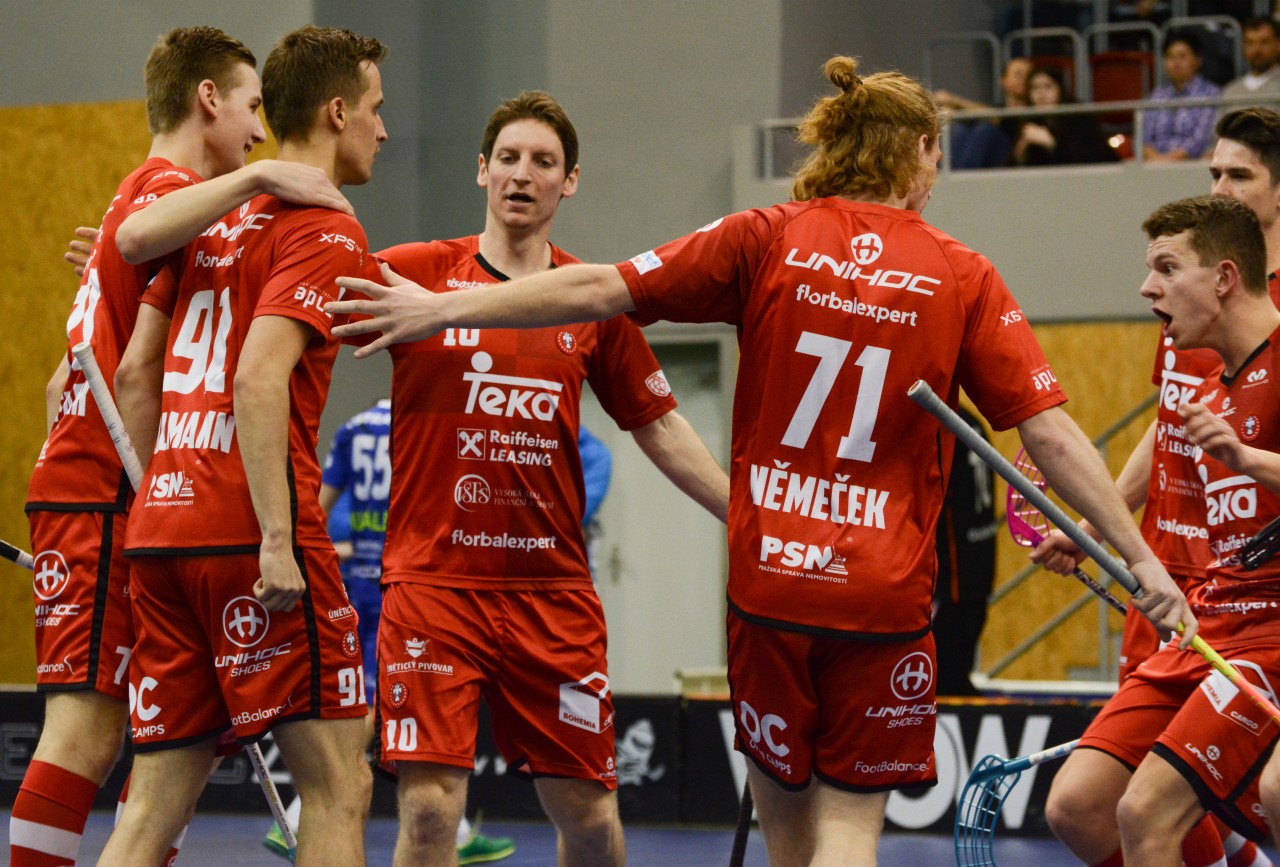
Roller Hockey
Teka has been present as in the Czech Republich National Superleague of Roller Hockey as the main sponsor of the Tatran Teka Stresovice.
O compromisso da Teka com o desporto abrange várias disciplinas e o logotipo da empresa é facilmente associado a alguns dos momentos mais gloriosos das equipas espanholas. O andebol tem um lugar especial nessa história, pois foi com ele que a Teka iniciou a sua jornada no patrocínio desportivo em Cantábria, norte de Espanha, em 1975. Nesse ano, a equipa de andebol Club Balonmano Cantabria foi fundada como um Grupo Desportivo Teka Santander, com o apoio financeiro da empresa. Mal sabiam eles que uma equipa local da segunda divisão deixaria uma marca indelével não só na história do andebol, mas também no desporto espanhol.
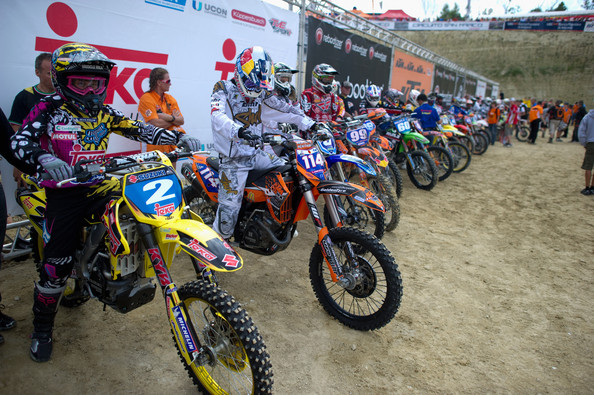
Campeonato do Mundo FIM de Motocross Teka
A Teka iniciou a sua jornada no motociclismo em 2008 ao patrocinar a equipa Suzuki de motocross, que se destacou como uma das mais respeitadas daquele ano. Assim, a marca expandiu o seu apoio ao desporto. Esse passo no motocross também foi uma excelente maneira de apresentar a marca ao público nos países do norte da Europa, onde a Teka já era bem conhecida (Alemanha, Portugal e Espanha). Na época, a equipa Teka Suzuki WMX1 contava com nomes como Steve Ramon e Ken de Dycker, que conquistaram o segundo e terceiro lugares, respetivamente, no Campeonato Mundial de Motocross daquele ano.
Logo depois, a Teka fez movimentos decisivos no patrocínio. Em 2009 e 2010, a marca tornou-se um dos principais patrocinadores do Campeonato Mundial FIM de Motocross nas categorias MX1 e MX2. Esta competição de renome internacional atraiu, globalmente, um grande número de seguidores, tornando-se um exemplo para marcas desportivas e patrocinadores, especialmente na Europa Central e do Norte. Realizada em diversos países e com ampla cobertura televisiva, o motocross destacou-se como um dos desportos mais emocionantes de assistir.
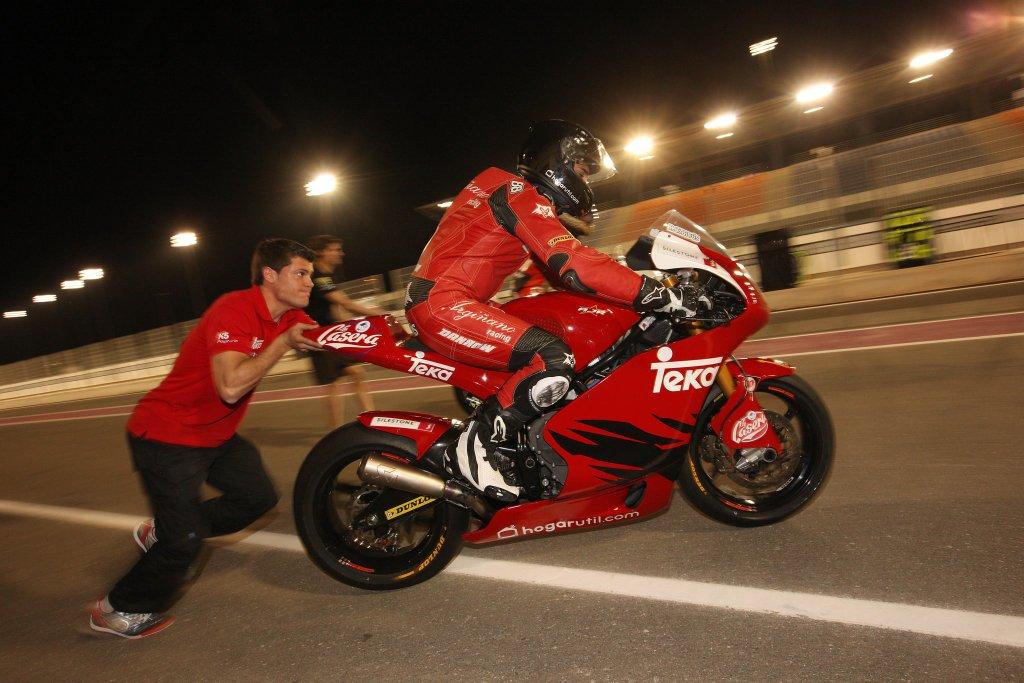
Teka enters Moto2 in 2012 through AGR Team
A Teka entrou na principal competição de Moto2 ao patrocinar a AGR (Arguiñano and Ginés Racing Team), de propriedade de Karlos Arguiñano. Motivado pela paixão pelo motociclismo, Ginés Guirado, mecânico com mais de 20 anos de experiência, com pilotos como Jorge Martínez ‘Aspar’ e Ángel Nieto, uniu forças com Karlos Arguiñano, um chef do País Basco. Juntos, focaram os seus esforços em descobrir jovens talentos promissores para a equipa. Em 2012, a AGR iniciou, com sucesso, a sua trajetória nas principais competições, alcançando a categoria Moto2 do Campeonato Mundial de Motociclismo com o patrocínio da Teka. O piloto Ricky Cardús qualificou-se para o Campeonato Mundial com a equipe AGR.
A relação intensa e próxima da Teka com o desporto, ao longo desses anos, demonstra o compromisso da marca. A Teka tem apoiado novas equipas e jovens talentos em diversas modalidades desportivas, ajudando-os a avançar para as principais competições.
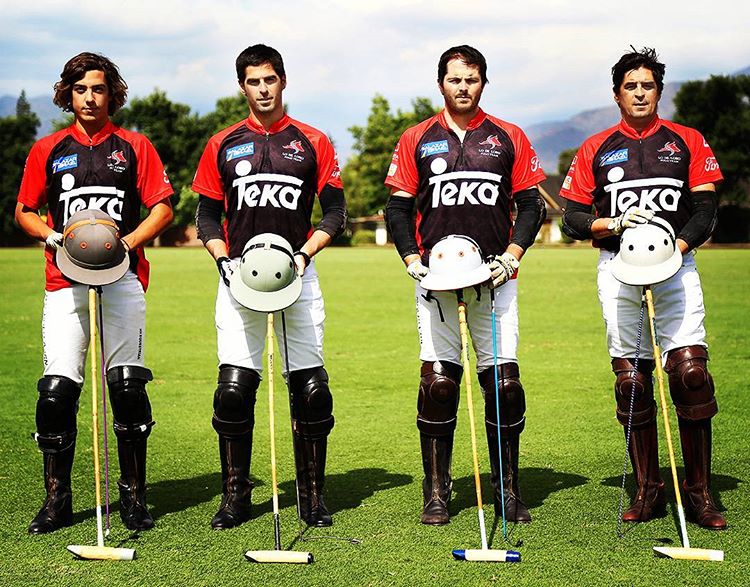
Other Sponsorships
Teka has supported sports for more than 60 years, not only football and basketball, but also other kinds of sport disciplines around the globe. The brand was in Rally Dakar in Chile, Rally Desert Challenge, Polo or Ice hockey.
In 2014 Teka was in Sochi Olympic Games, sponsoring Hungarian double medal winner Imre Pulai.
